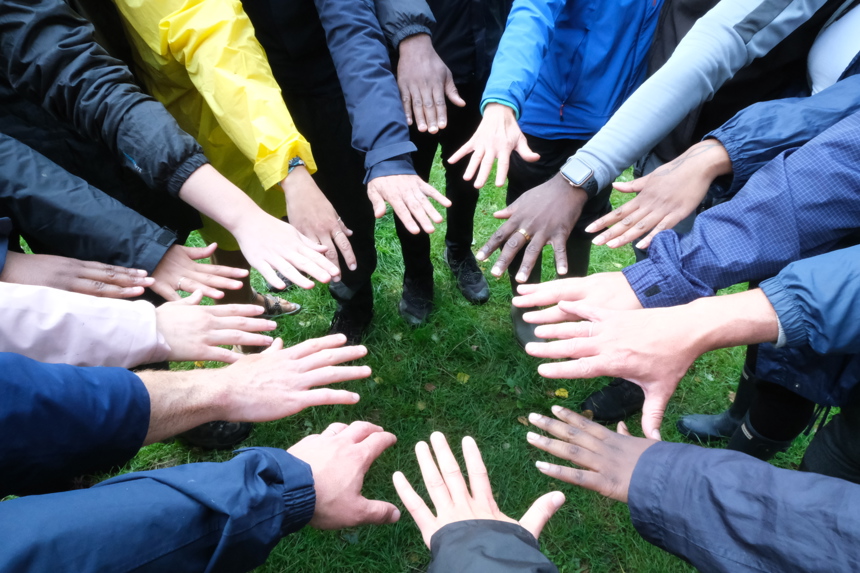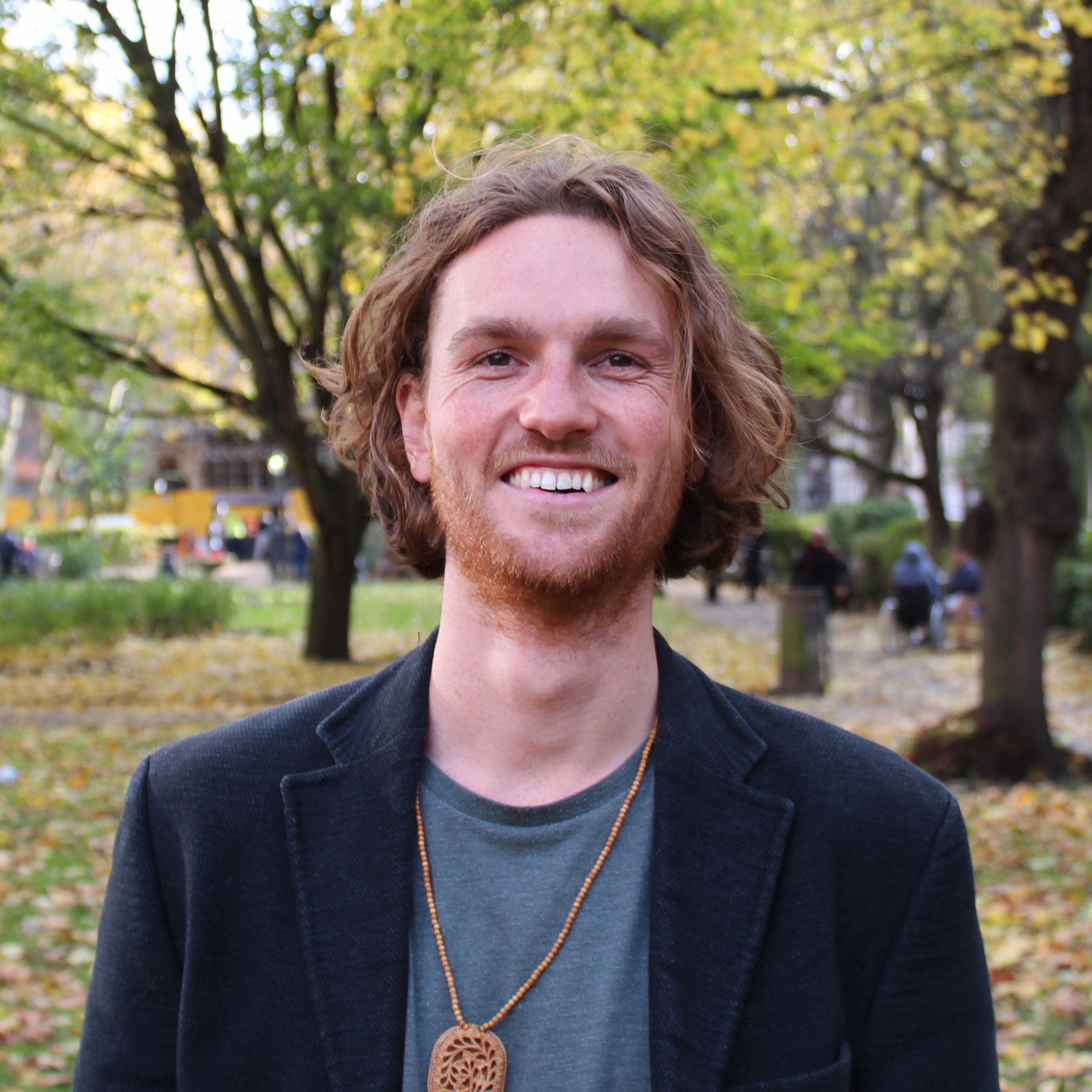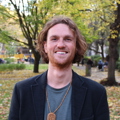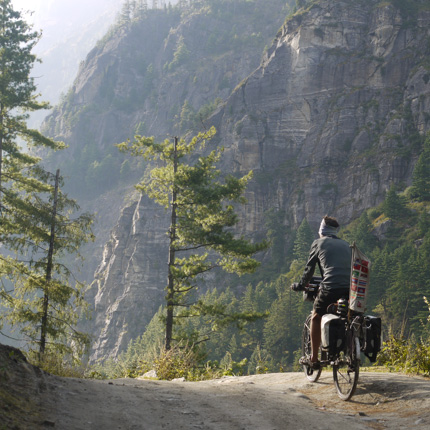
Time marches on, yet our future feels ever more challenging. Normality strains to reassert itself as we wade through a global pandemic. But do we want to go back there, to how life was before? Dreams, and nightmares, are multiplying. The doomsday clock has reached 100 seconds to midnight. The future feels a bit shaky. So back in 2018 we started The Visionaries. Our mission is to support schools across the UK to play their part facilitating The Great Transition, harnessing education’s transformative potential to bring about radical change in society.
Whatever you believe about what's in store for us, events of recent months have been stark reminders of how global crises are often the direct result of choices we have made in how we relate to each other and to the natural world. Our food systems bring us closer and closer to new infectious diseases. What were once 'freak weather events' have become the norm everywhere you look. We continue to trick ourselves into believing that we are separate from one another. To me, this is the worst lie of all. It fuels a worldview that breeds careless destruction, racism, social and economic inequality, divisive politics and resource extraction (to name just a few symptoms).
It’s the worst of lies because we can't see the challenges we face in isolation. They're not separate. It doesn't take much looking at history to see how social and racial inequalities are intimately linked with our exploitation of nature. As profit is put before people and planet, we plunge deeper down a dark, dark hole.
It's become obvious we need to profoundly adapt how we live, but how? We know the master's tools won't dismantle the master's house. Look at how it took a global pandemic for people to begin to recognise the level of adaptation needed to stay below the 1.5 degree increase to global temperatures. The shift isn't happening quickly enough. We need to be bolder, more courageous, more adventurous, more radical, in our actions and our ideas. We need to tell a new story of what's possible. And that belief, that ambition, must include change at a personal level. It’s an inner journey, as well as within our closest communities.
This where our work with The Visionaries comes in. We believe any healthy and health-creating society should begin with the question ‘how are the children?’ For it's in how we educate and support children into the world that future generations embrace and build the rules of engagement. How can young people growing up without any meaningful personal experience of the natural world be expected to act with consideration towards it? How can we expect youth to act compassionately and empathetically if they don’t practice these skills with peers and other adults from a young age? How can young people become resilient and know how to deal with adversity without opportunities during their development to stretch, grow and, with support, step into the unknown?
This is why The Visionaries helps schools to model healthier ways to live, love and learn into their culture and curriculum, and into the experiences they offer to students and staff. Schools can be places of ecological leadership, of deep personal and collective healing, and catalysts for radical change in society, if they choose to go above and beyond their narrow government mandate.
There’s an ancient practice carried out across the world throughout history, forgotten about by many, that when remembered and adopted offers a powerful gateway to the ‘good life’. This practice is called community-oriented rites of passage. We partner with schools to offer rites-of-passage experiences to staff and students, enabling individuals to navigate big transitions in their lives and supporting youth to cross one of life’s biggest thresholds - from childhood to adulthood.
Photo courtesy of Max Girardeau

Our programmes involve a combination of preparatory sessions in school, building towards transformative experiences 'out there' - in wild, awe-inspiring places around the UK. It’s out there that the real magic happens. Students and staff from the school to spend a week living as a community off grid, cooking on an open fire, exploring wild places, wild swimming and building up towards a ‘nature solo’ - an invitation to spend up to 24 hours of time alone in the wild, away from habitual distractions. It’s an ancient practice, going out alone into nature to seek wisdom and coming back to the community to share what happened. This nature solo gives participants space and time to reflect on big life questions, to connect more intimately with the more-than-human world, and can be an incredibly powerful way to tune in to what we most value about our lives. It can become a pivotal moment in crossing the threshold into adult life.
These nature-based rites of passage become great tools for enhancing community health, cohesion and resilience, and can build a strong culture of ecological leadership in school. They create new perspectives from which to see our everyday lives and help us to evaluate what it is we really value and yearn for. It’s then from this place of discovery and openness we facilitate genuine community building and help schools to expand their sphere of consideration to include the natural world in meaningful ways. For example, we teach students and adults how to self-care, how they can use nature as a free resource to support them to live well. We practice self-awareness, healthy communication and conflict-resolution skills that help foster healthy relationships.
Living wild as a community gives individuals a wealth of lessons to take and apply to their lives. Seeing the importance and the beauty of diversity in nature, and how essential it is for a thriving ecosystem, helps individuals celebrate each others' differences and celebrate everyone's unique contribution to the school. Appreciating how slowly things happen in nature reminds us we don't need to move so frenetically through our lives.
As the global population becomes increasingly urbanised, there's a growing need to create explicit experiences that reconnect us to nature and in turn reconnect us to ourselves. As John Muir famously said, “I only went out for a walk and finally concluded to stay out till sundown, for going out, I found, was really going in.”
It's by seeing ourselves mirrored in the wonders of nature that we come to discover ourselves as part of something much bigger, more cosmic. We feel connected and part of something rather than apart from everything. Our programmes help individuals and whole school communities transform their culture to embrace nature-connected philosophies and practices. We support youth to transition into healthy adulthood through a journey of self-knowledge, healthy expression and collective healing.
Much of what was shared in the last Adventure Uncovered Edition spoke to the internal aspect of adventure - the inner journey. I reckon this really is the core of why we adventure. To discover our full selves, to see and accept ourselves for who we are, so we can step out into the world sure of where we stand and where we want to go. This inner journey happens alongside whatever form of 'outer' adventure we embark on. It responds to an innate craving we have as humans beings- the craving for belonging, for meaning and for a sense of purpose. We need to ensure future generations get the chance to discover their full selves. And if a part of each of us is 'out there', in the wild, then we need to set them free. Free to explore, adventure, stumble, get back up and stand on summits seeing the expanse of their being mirrored in the beauty of the world around them.
If Nora Bateson is right that “hindsight is looking into the eyes of future generations without excuses,” what must we do to be able to look unashamedly into their eyes and tell them we did everything we could?







